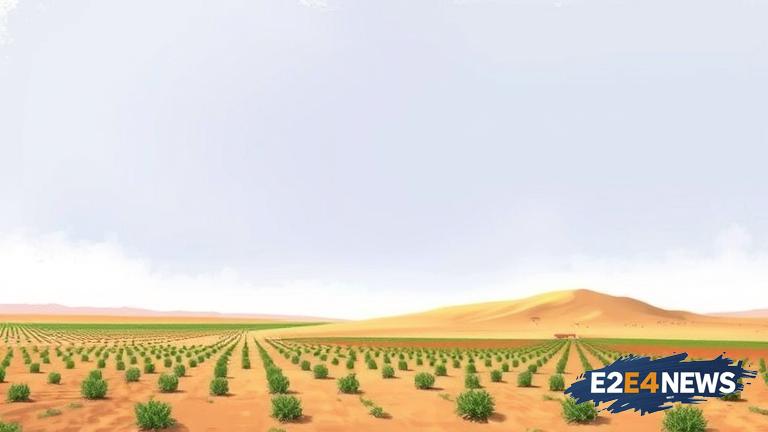Israel, a country known for its ingenuity and innovative spirit, is making significant strides in desert agriculture. With its unique blend of technology and farming expertise, Israel is transforming the desert landscape into a fertile and productive environment. The country’s innovative approaches to agriculture have been gaining international attention, with many countries seeking to replicate its success. One of the key factors contributing to Israel’s success in desert agriculture is its advanced irrigation systems. These systems enable farmers to conserve water and optimize crop yields, even in the harshest of desert conditions. Additionally, Israel has developed specialized crops that are resistant to drought and can thrive in the desert climate. The country’s agricultural experts have also been experimenting with new farming methods, such as vertical farming and hydroponics, which have shown promising results. Furthermore, Israel has established a number of agricultural research centers and institutions, which provide valuable support and resources to farmers. These centers offer training and guidance on the latest farming techniques and technologies, helping farmers to stay up-to-date with the latest developments in the field. Israel’s innovative approaches to desert agriculture have also been recognized internationally, with the country being invited to share its expertise with other nations. The Israeli government has also launched several initiatives aimed at promoting desert agriculture, including the establishment of a new agricultural fund. This fund will provide financial support to farmers and agricultural projects in the desert regions, helping to stimulate growth and development. Moreover, Israel has been collaborating with international organizations and countries to promote sustainable agriculture and reduce poverty in developing nations. The country’s expertise in desert agriculture has also been applied to other areas, such as urban agriculture and precision farming. Israel’s innovative approaches to agriculture have also been driven by the need to address food security challenges. With the global population projected to reach 9 billion by 2050, finding sustainable and efficient ways to produce food is becoming increasingly important. Israel’s desert agriculture initiatives are not only helping to address food security challenges but also providing a model for other countries to follow. The country’s success in this area has also been recognized by the international community, with Israel being awarded several prestigious awards for its innovative approaches to agriculture. In addition to its technical expertise, Israel has also been sharing its knowledge and experience with other countries, providing training and capacity-building programs for farmers and agricultural experts. The country’s agricultural sector has also been driven by a strong entrepreneurial spirit, with many start-ups and companies developing innovative solutions for desert agriculture. Overall, Israel’s innovative approaches to desert agriculture are transforming the way we think about farming and food production, and providing a model for sustainable and efficient agriculture in the 21st century. With its unique blend of technology, expertise, and innovation, Israel is poised to continue playing a leading role in the development of desert agriculture. The country’s success in this area is a testament to its ingenuity and determination, and provides a powerful example of what can be achieved through collaboration, innovation, and a commitment to sustainability. Israel’s desert agriculture initiatives are also having a positive impact on the environment, helping to reduce the country’s carbon footprint and promote sustainable development. The country’s agricultural sector is also providing employment opportunities and stimulating economic growth in rural areas, helping to reduce poverty and promote social equality. In conclusion, Israel’s innovative approaches to desert agriculture are a shining example of the country’s ingenuity and innovative spirit, and provide a model for sustainable and efficient agriculture in the 21st century.
